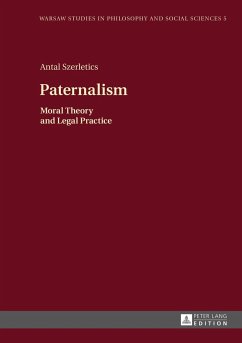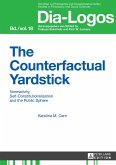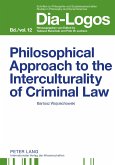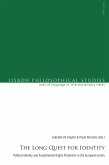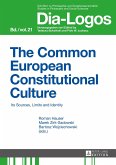This book explores and critically evaluates conceptual and justificatory models related to paternalism in the context of moral philosophy. Paternalistic interventions promoting someone's good or protecting the person from self-harming actions raise controversial questions from a legal and an ethical perspective. The tension between the benevolent character of paternalism and its interference with personal autonomy seems to hinder the development of a coherent theory that could specify the "proper" limits of protective state interventions. The theoretical investigation is complemented by selected cases from the jurisprudence of the European Court of Human Rights and the Constitutional Court of Hungary.
Bitte wählen Sie Ihr Anliegen aus.
Rechnungen
Retourenschein anfordern
Bestellstatus
Storno

